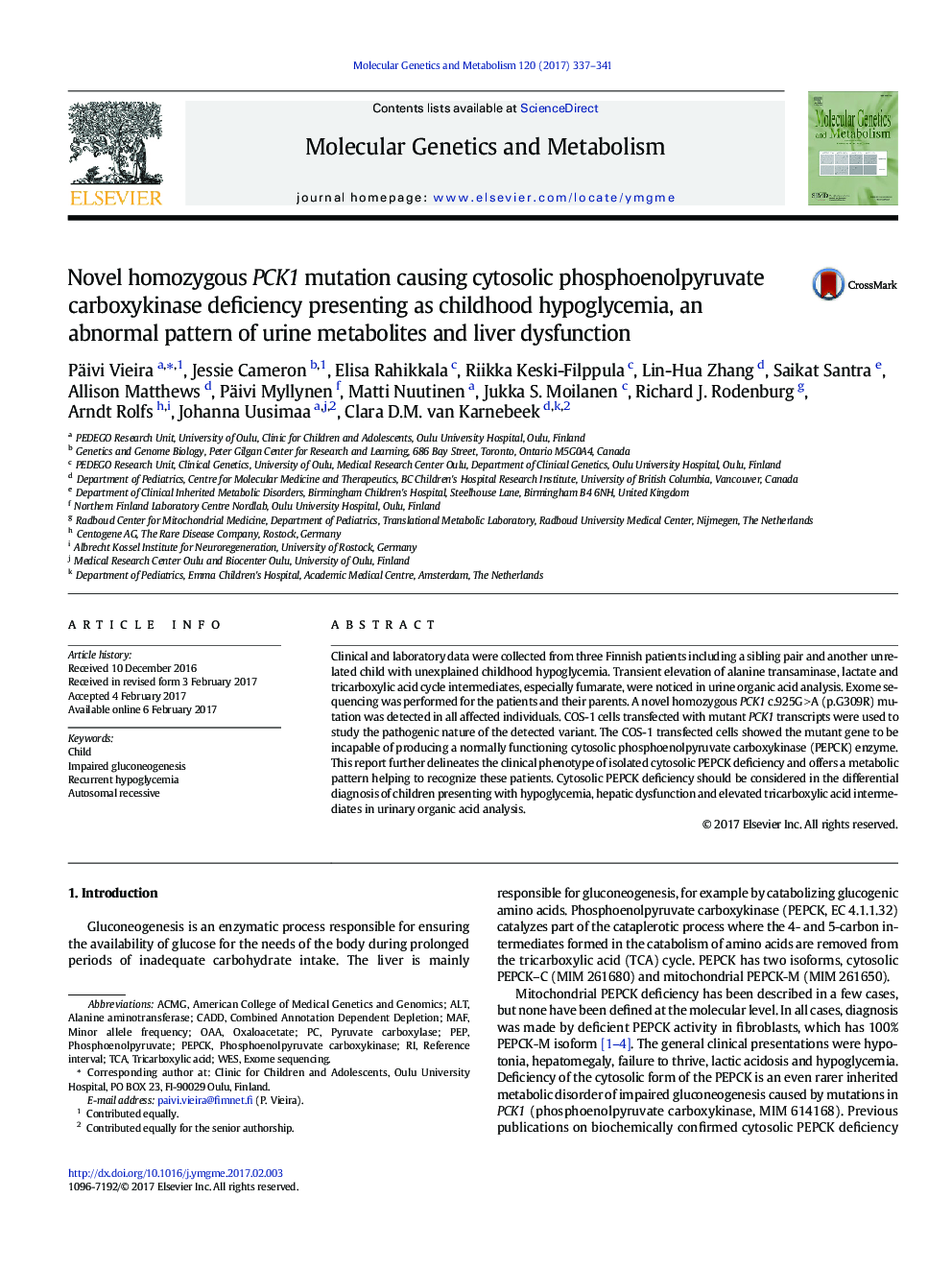| Article ID | Journal | Published Year | Pages | File Type |
|---|---|---|---|---|
| 5513945 | Molecular Genetics and Metabolism | 2017 | 5 Pages |
â¢This is the first time cytosolic PEPCK deficiency is linked to hypoglycemic episodes presenting after infancy.â¢Biochemical evidence for the pathogenicity of a novel homozygous PCK1 mutation is shown.â¢A pattern of urine organic acid metabolites, aiding in the recognition of this condition, is presented.
Clinical and laboratory data were collected from three Finnish patients including a sibling pair and another unrelated child with unexplained childhood hypoglycemia. Transient elevation of alanine transaminase, lactate and tricarboxylic acid cycle intermediates, especially fumarate, were noticed in urine organic acid analysis. Exome sequencing was performed for the patients and their parents. A novel homozygous PCK1 c.925GÂ >Â A (p.G309R) mutation was detected in all affected individuals. COS-1 cells transfected with mutant PCK1 transcripts were used to study the pathogenic nature of the detected variant. The COS-1 transfected cells showed the mutant gene to be incapable of producing a normally functioning cytosolic phosphoenolpyruvate carboxykinase (PEPCK) enzyme. This report further delineates the clinical phenotype of isolated cytosolic PEPCK deficiency and offers a metabolic pattern helping to recognize these patients. Cytosolic PEPCK deficiency should be considered in the differential diagnosis of children presenting with hypoglycemia, hepatic dysfunction and elevated tricarboxylic acid intermediates in urinary organic acid analysis.
